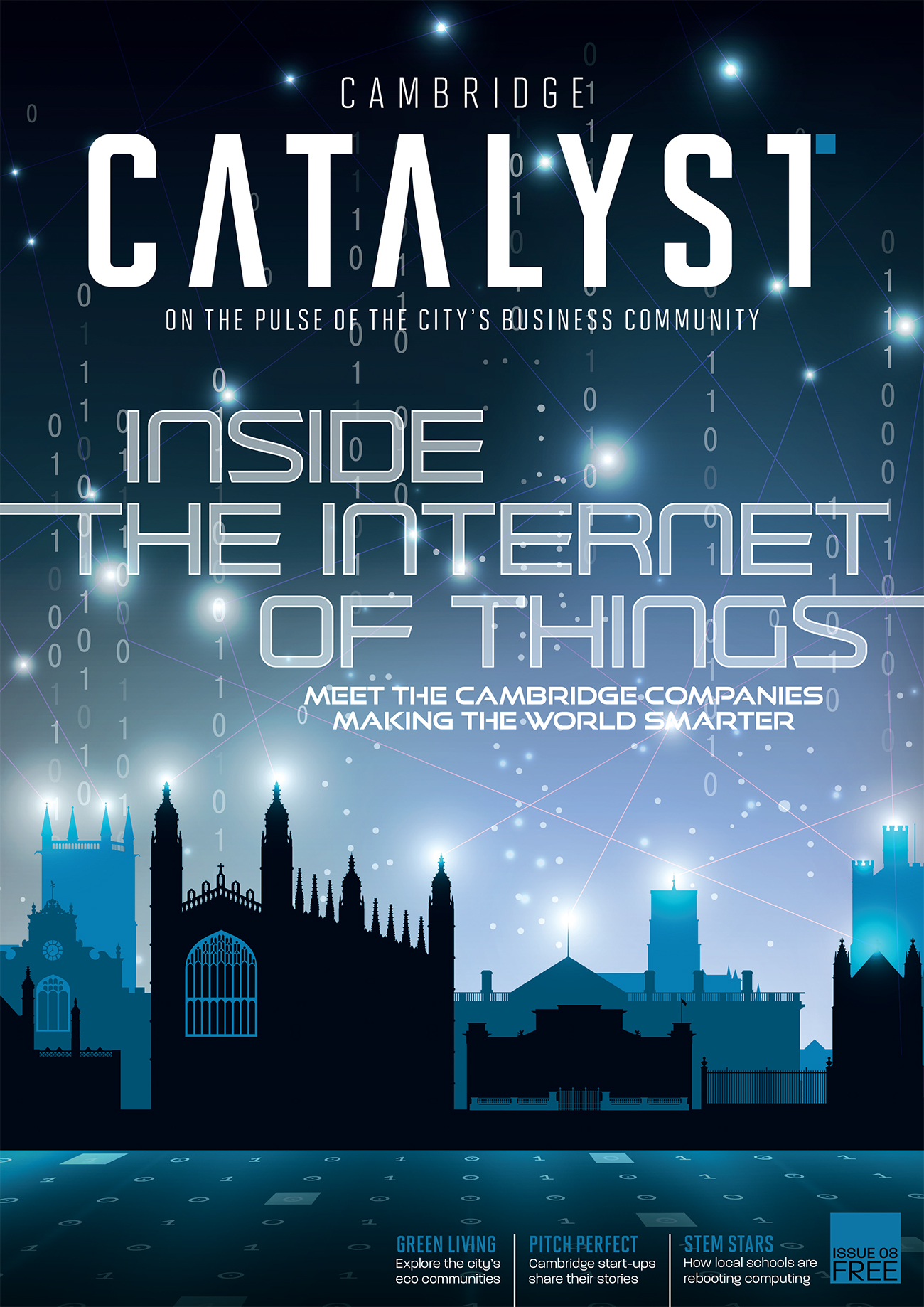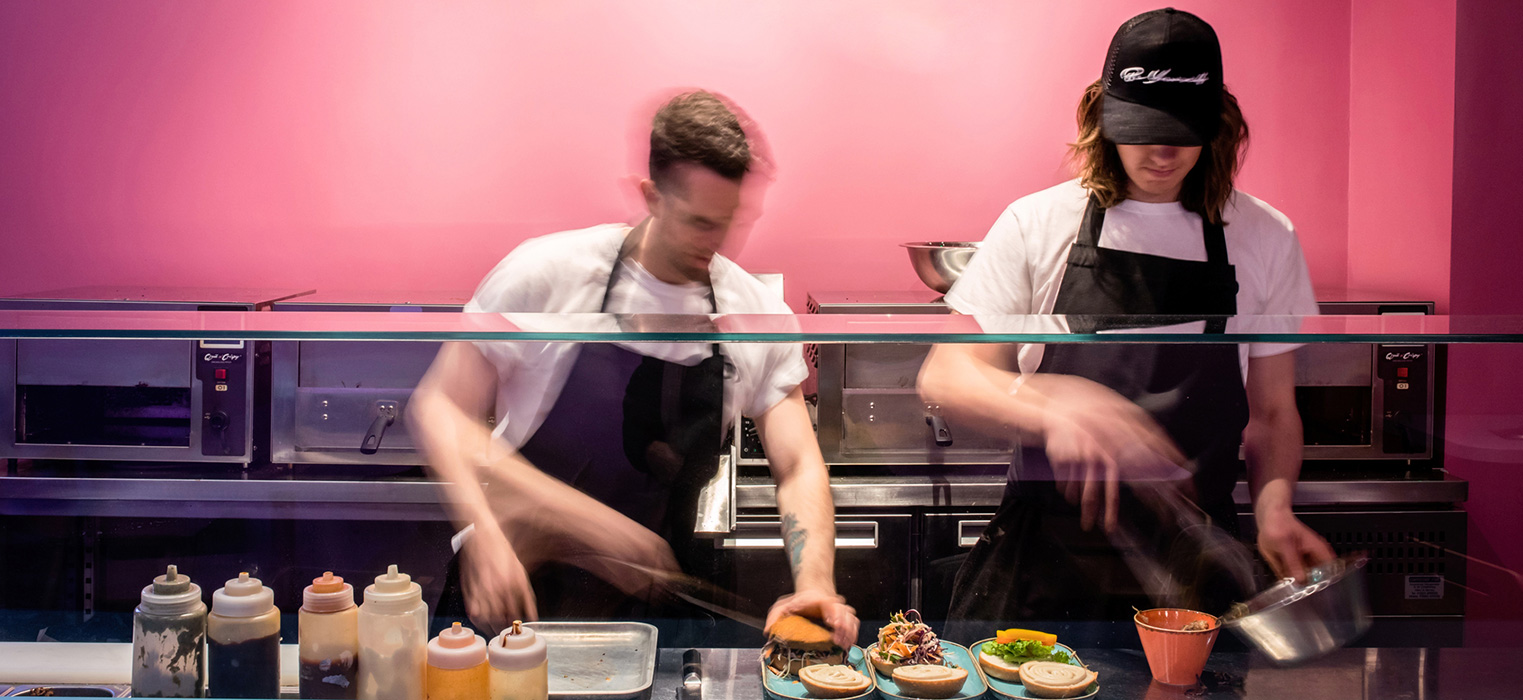
Dopple Act
Posted on Aug 27, 2020 by Cambridge Catalyst
Alfy Fowler tells Catalyst how he went from graphic designer to running Cambridge’s much-hyped vegan burger restaurant, DoppleGanger
No matter how driven you are, going from working on your own to running a team of people is a challenge: but it’s one that’s relished by young entrepreneur Alfy Fowler, the brains behind Cambridge-based vegan burger restaurant, DoppleGanger. Having started as a pop-up on the roof of the Hills Road office where he’d been working as a full-time graphic designer, Alfy then took his concept forward as a residency at underground bar 2648 – before finding investment and opening a permanent site in January this year, on Regent Street in the heart of Cambridge.
DoppleGanger now serves up a menu of plant-based creations seven days a week that use the best of what’s available: as its website proudly proclaims, it’s ‘not junk, just plants’. Diners can choose from classic menu items like air-fried fries or the BBK: a burger packed with miso, lime, Korean barbecue sauce, cucumber and pear – or seasonal specials that come and go as they’re developed by Alfy’s team of chefs.
Before opening DoppleGanger, Alfy did his homework, joining Deliveroo as a rider to ‘suss out’ what the service was about, and restaurant owners around the city offered advice to the budding restaurateur. “One bloke said I’d need six months’ cash just to stay alive,” he recalls, “but when I opened at 2648 last year, I paid my personal rent a month ahead from my last pay cheque as a designer, I had £400 cash in my account and my parents got me a fryer for Christmas. That’s what those text messages on the wall of the restaurant are about.” (If you visit DoppleGanger, you’ll see a mural of a conversation on the side of the kitchen.) “I’d better go sell some burgers, otherwise I’m screwed…” he laughs. “Cashflow’s always the killer: but it’s never huge amounts for us. We’ve never not been profitable.”
Starting any business is scary, and though the audience was proven thanks to his sell-out pop-ups, it was the strength of the reception to DoppleGanger’s permanent site that took Alfy by surprise. “I’d built up the business in the basement at 2648, tucked away. In those first couple of weeks, on a Monday I was already doing what I’d take in a week in the basement. It was manic. Now it’s levelled out nicely.”
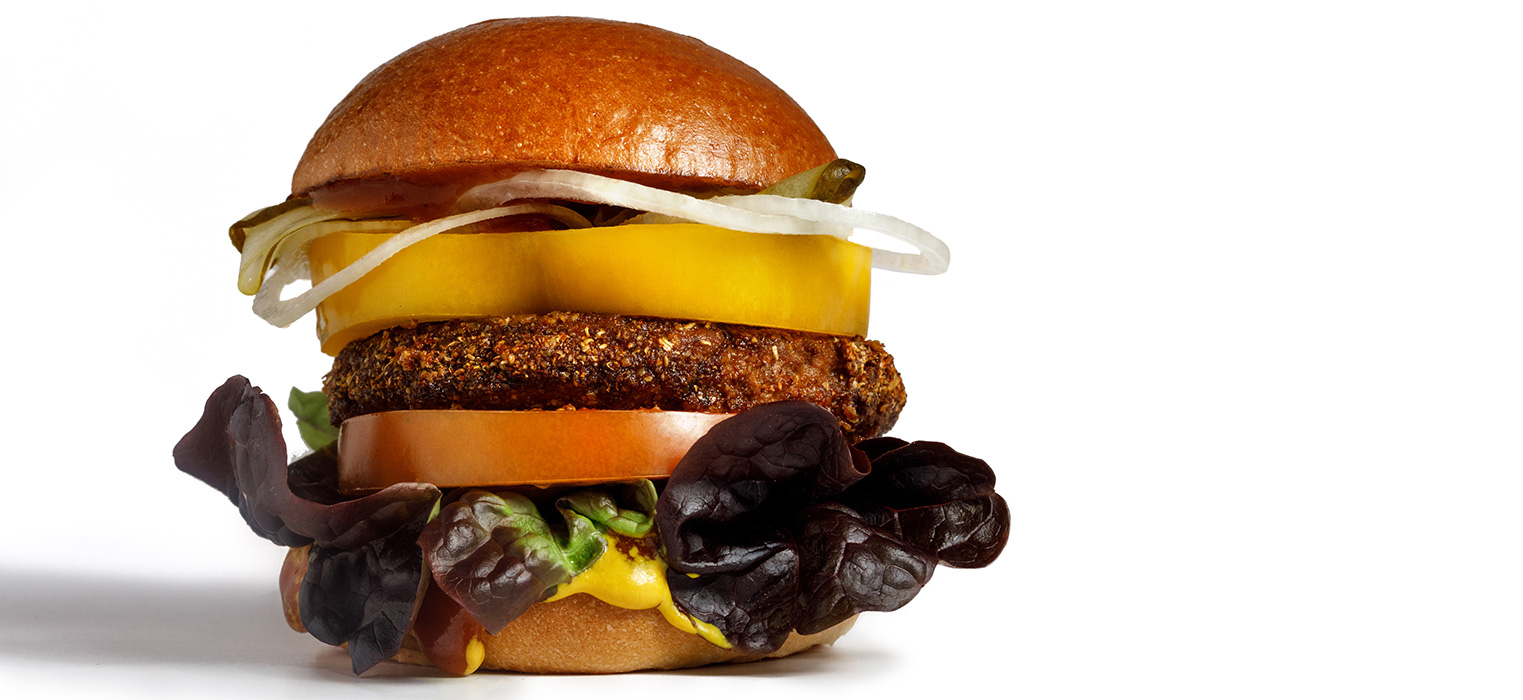
Along with investment, Alfy’s benefactors introduced him to a business coach, who’s been slowly adding to the young entrepreneur’s skill set. “They said to me: ‘If you look at share prices every day, it won’t make sense. That’s not the game: the game is to see a trend.’ The staff perceive quietness differently – they’ll go, ‘Oh, it’s been dead today’ – but then you look at the end of the week, and it’s been a good week,” Alfy explains.
He’s quick to correct anyone who thinks that opting for vegetables instead of animal proteins has a positive effect on the business’s bottom line. “That’s a misconception,” he jumps in. “Some people assume my costs are really low, but the chefs I’ve got in now – in a normal kitchen they could get in at 9am and prep for lunch, but our staff costs are higher, because you have to do a lot more to a vegetable to get it to taste decent. Time is the cost. Say that mushroom – say that was a bit of lamb: you’d just have to bone it out and it’s a bit of lamb. With the mushroom, you have to peel ten cloves of garlic, make a paste, chop and roast them for an hour – it’s a lot more labour intensive. Some people go, ‘Oh, £10’s a lot for a vegan burger’, and I’m like: ‘I’m not laughing to the bank here: I wish I were!’ I pay all my staff the living wage and above – I’ll show them the numbers!”
 You've got to disconnect yourself from the thing you're working on. A lot of your heart goes into cooking, but if you take all the critiques personally, you're not going to be very good at your job. You need to look at the thing as a product of what you made, and take critique on it
You've got to disconnect yourself from the thing you're working on. A lot of your heart goes into cooking, but if you take all the critiques personally, you're not going to be very good at your job. You need to look at the thing as a product of what you made, and take critique on it
And it’s not just healthy food that DoppleGanger’s serving up: Alfy’s aim is for the business environment to be as clean-living as the dishes it serves. “Having a business coach sounds all waffy and American, but it’s about healthy organisations,” he explains. “In your office, there might be a guy sat next to you who you just hate – hate’s a bit strong, but you know what I mean,” he laughs, “and the business coach’s idea is that if you bring all this stuff out into the open, just say it and deal with it, you create an environment where people want to be. Vulnerability’s at the heart of it. When we started out, we did this exercise where we said, as a kid, what our most harrowing experience was. It opens everyone up and it levels the playing field. If you’re all vulnerable, everyone can mess up, everyone can make mistakes – there’s no longer this thing of having to be good. I’ve managed to create quite a calm working environment, and I think the customers pick up on that – a few of the reviews have mentioned that it’s calm and we look like we know what we’re doing. Whether we actually know what we’re doing, of course…” he smiles.
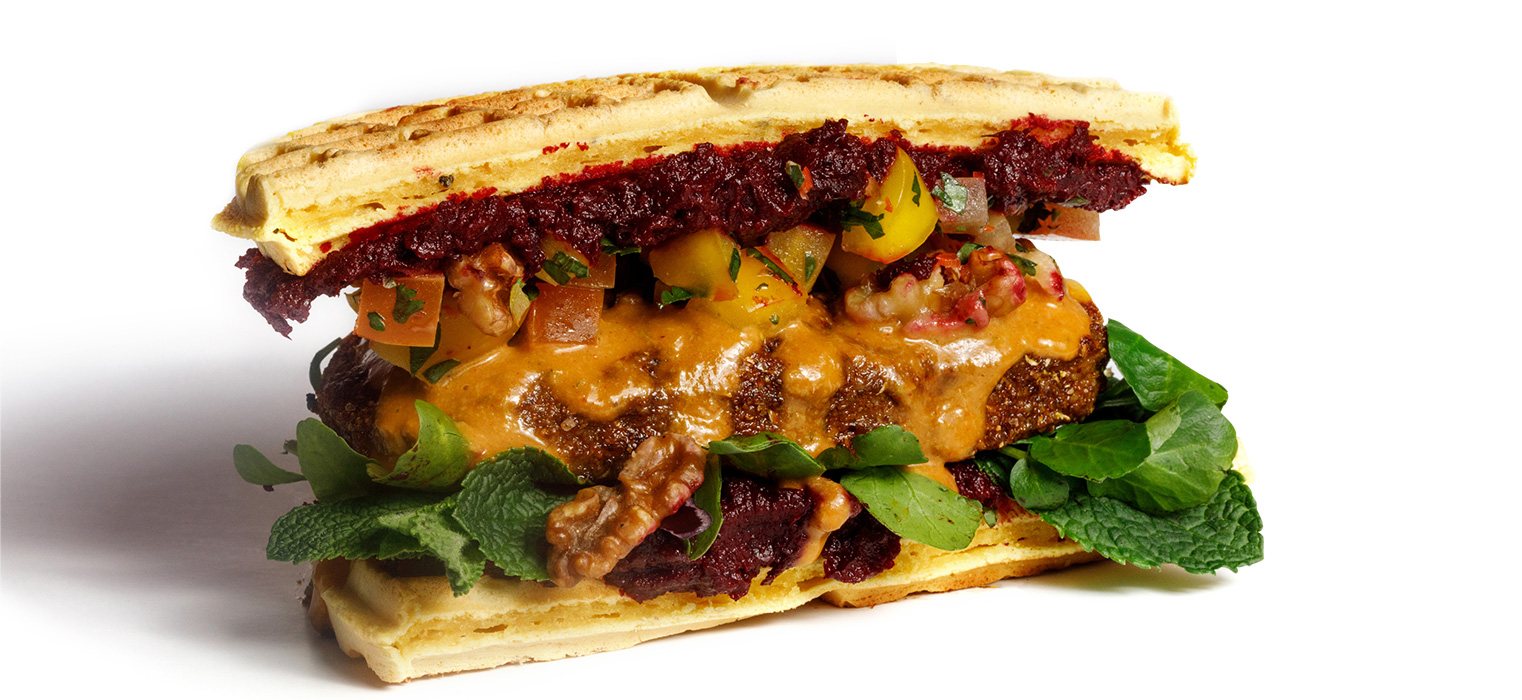
Alfy’s approach to management seems to be working, with the vast majority of the (mainly vegan) staff sticking around and relishing the challenge of opening diners’ eyes. “I tell the chefs: your cooking now is your chance to impress someone with a plant-based diet. The diner could think, ‘Oh, this is bad, and so this whole diet is bad’, but my chefs care so much that they don’t mess it up. A lot of my team are very hardcore – some of them would only date other vegans. A cult, not a business – ‘cult classic, not bestseller’,” he laughs, then explains The Streets lyric that went sailing over my head. “Did you get that reference? It was in the early business plan as well. I don’t think they got it, either…”
It seems as though Alfy’s always had an entrepreneurial streak: at university he sold lamps he’d designed himself, and began a breakfast subscription business. However, it’s only with starting this latest business that home truths have come to light. “My lamps were fairly average,” he admits, “but with DoppleGanger, the product’s really good – people come for it, they want it and that’s it. You can write as many spreadsheets as you want, but at the end of the day, it’s got to be a good product.”
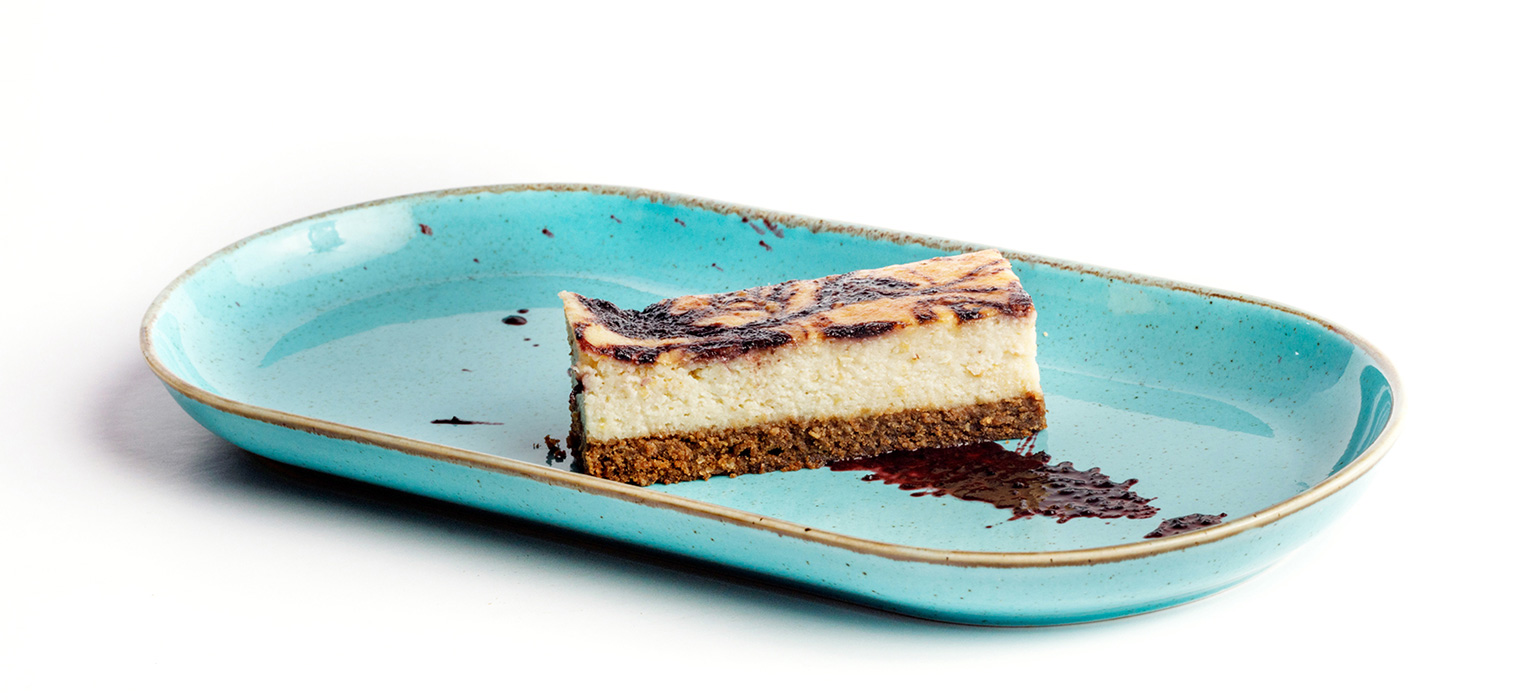
When mistakes are made, Alfy’s design background gives him a philosophical stance on improvement. “At college, we were taught you’ve got to disconnect yourself from the thing you’re working on. A lot of your heart goes into design – and the same with cooking as well – but if you take all the critiques personally, you’re not going to be very good at your job. You need to look at the thing as a product of what you made, and take critique on it. If it’s not good, you’ve got to say there and then: it’s not right. Ultimately, we’re putting a burger on a plate. If it’s not good, we’ll redo it.”
While working as a designer, Alfy specialised in UX (user experience), which has left him with a unique skill set for creating a restaurant brand. “Design, marketing, any of the dark arts: people only notice they’re bad when they’re bad,” he laughs. “It’s never commented on when it just works. And the idea of scaleability, especially with software, is a massive thing. You can make something here, but then roll it out in every country – and that’s what I used to do, so that’s what I’ve done. What we do in a night now is what we were doing in a week: I look at the tracking app and think, ‘OK, if that was five restaurants, that’d be five times as much. And then ten restaurants… that’d be a lot.”
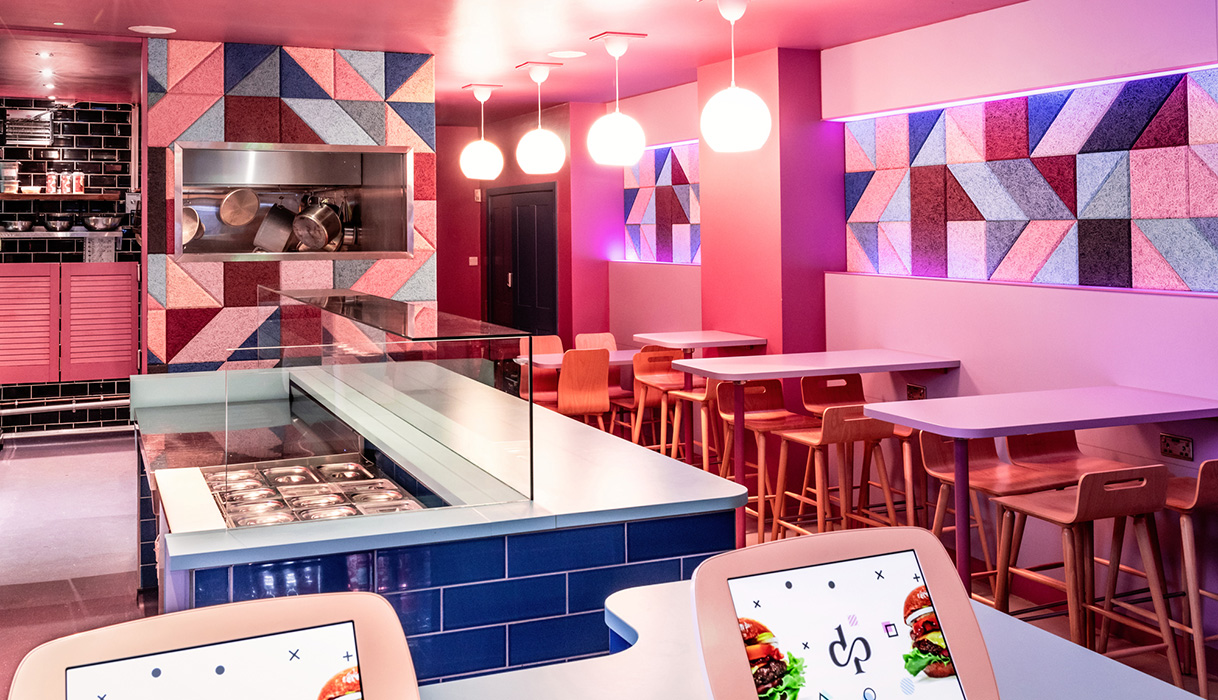
But it’s not all about the bottom line. Like many entrepreneurs, Alfy’s not entirely driven by profit. “I don’t do it because of money: it’s a feeling of accomplishment. There are some people who go to work, get their pay cheque, look forward to the weekend, that’s what they do. Whereas, I think people who do their own thing don’t get the same satisfaction from going into work to get a pay cheque. The money’s a nice part of it, but it’s the entrepreneurial bit of it – it’s not identifiable as ‘I want to be wealthy’.”
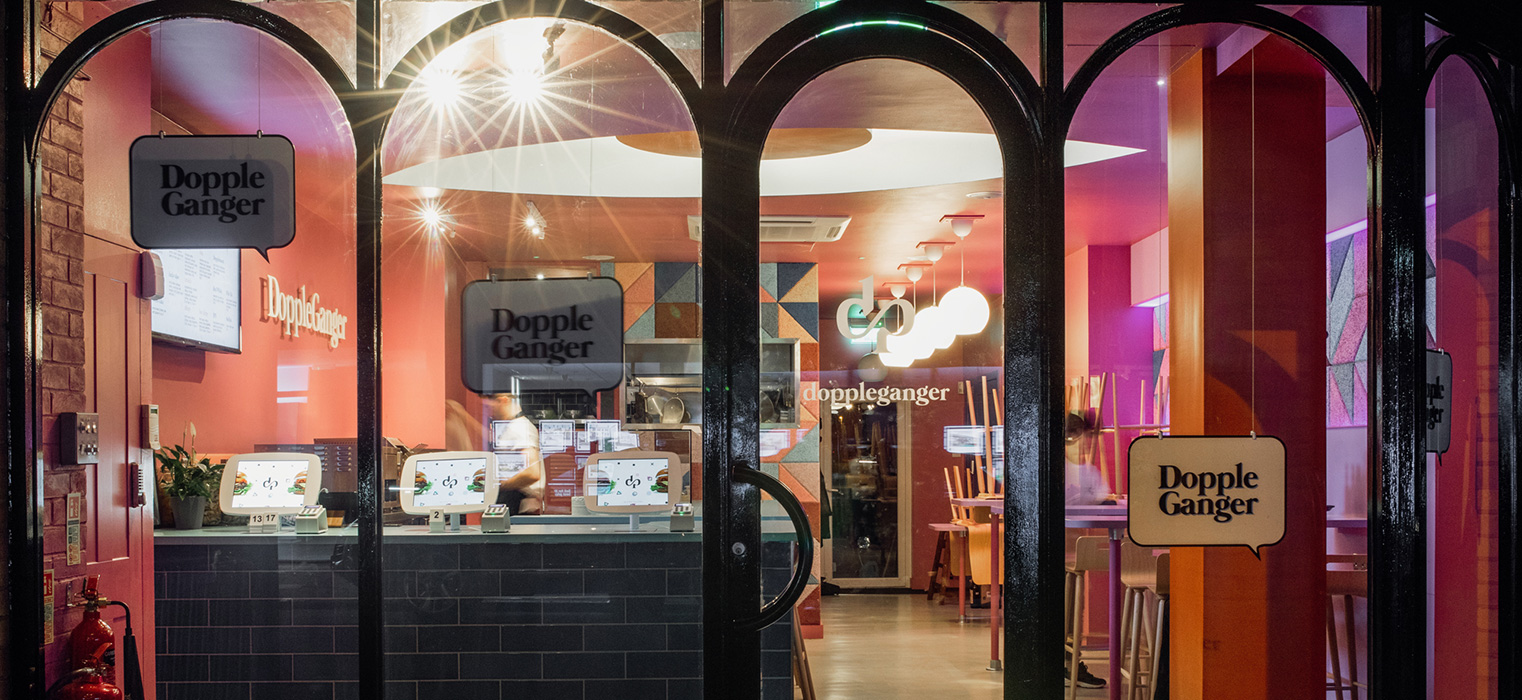
Alongside Alfy’s matter-of-fact approach to management, he’s also sincere about the possibility that his restaurant can make an actual difference to individuals – and to the planet. “There’s no rosy nonsense about it,” he says. “If someone eats 12 burgers a year, but they have three of ours, then I’ve actually made a difference. That’s what annoys me about design: we can make better equipment for disabled people, but it’s completely inaccessible because it costs tens of thousands of pounds. But we can make a burger, and if Mr Meat chooses to come to us, then we’ve actually… done something.”
This article first featured in Issue 02 of Cambridge Catalyst.



